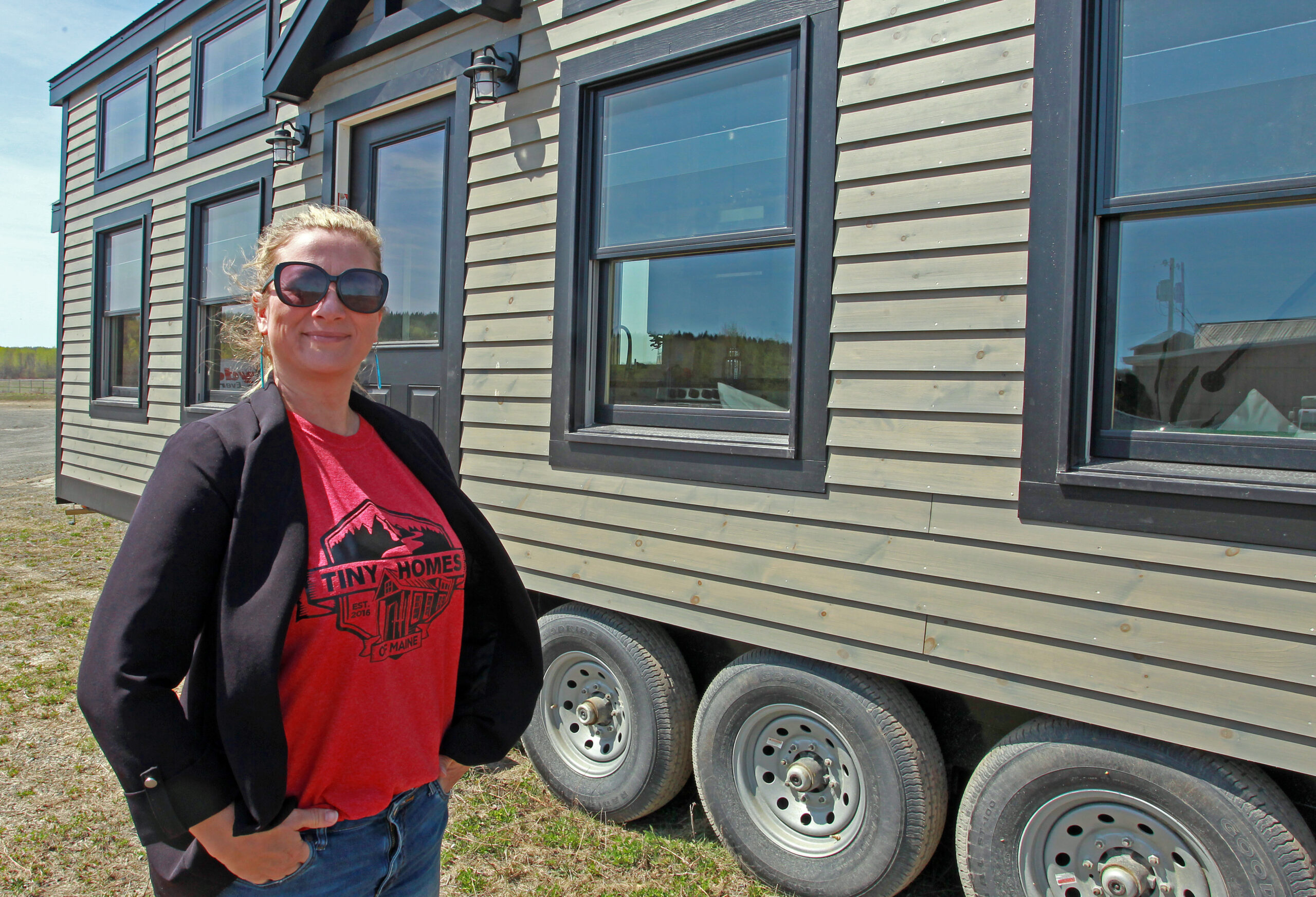
HOULTON, Maine — The final funding piece for the expansion of Tiny Homes of Maine manufacturing facility at the Houlton Industrial Park was awarded to Houlton’s Shiretown Development Corp. on Aug. 23.
One of 16 state organizations to receive Northern Border Regional Commission funding, the Shiretown Development Corp., which is run by the town, was awarded $500,000 toward the 12,000-square-foot $1.867 million project.
“Hopefully this will close the gap in funding and we can move forward,” said Houlton Director of Development Nancy Ketch on Wednesday.
Aroostook County is not immune to the national housing crisis and rising home prices. Many County towns have long waiting lists for rental units and the small inventory of homes for sale often sell within days of the property going on the market, according to local realtors.
Tiny Homes of Maine co-owner Corinne Watson said that tiny homes can help fill that gap.
“We have a major homelessness problem in Maine. My dream is to someday buy a field and fill it with tiny homes for people who have no home,” Watson said.
The first tiny home village in Maine was approved in Bangor earlier this year.
Watson and her husband Tom Small said their current manufacturing facility is in an old unheated airplane hangar at the Houlton Airport and that makes production difficult during Maine winters.
The Houlton project includes the purchase of a pre-engineered steel building, concrete slab, fixtures and cabinetry, electrical and utility hookups, and site work at the Houlton Industrial Park located at the Houlton Airport. The town will retain ownership of the property and Tiny Homes of Maine will lease it from the town, Ketch said.
“A manufacturing project this big will help them keep up with orders and provide jobs for the area,” Ketch said. “Increased productivity will have a good spiral effect for the community.”
Tiny Homes of Maine got off the ground in 2016 after the couple spent 18 months building a tiny home as a fun project while still juggling life demands, like holding down full-time jobs and getting their three children to school and field trips.
Watson, the company’s president and chief executive officer, is an engineer and has worked at major corporations including Smith & Wesson and IDEXX. Small, the company’s design engineer, brings construction and housing design experience and a creative eye to the company’s tiny home designs.
Small said some of the demand for tiny homes comes from homeowners changing perspectives after the pandemic. People are selling their homes and buying tiny homes because they want a simpler life and it’s getting harder to find contractors and supplies to build new, full-sized homes, he said.
The town has been working with Tiny Homes of Maine for several years to help the Houlton manufacturer expand, Ketch said. The project has also received Community Development Block Grant funding and U.S. Economic Development Administration monies, in addition to matching funds.
Prior to this most recent round of funding, Shiretown Development Corp. thought there was enough funding to move forward, but construction costs rose after the COVID-19 pandemic and they needed more, she said.
The Northern Border Regional Commission is a federal and state partnership, created in 2008, to encourage private sector job creation in Maine, New Hampshire, New York and Vermont.
On Wednesday, U.S. Sen. Susan Collins and Gov. Janet Mills announced the awards that are part of the Northern Border Regional Commission’s Catalyst Program, funded by the federal Bipartisan Infrastructure Law and the Commission’s federal appropriation.
There were 187 applicants for this funding award, with 35 grants going to communities with fewer than 5,000 people, and 30 to communities that have not previously been awarded National Border Regional Commission funding.
“These historic investments will strengthen Maine’s heritage industries, enhance our outdoor economy, increase our resilience to climate change, and create good-paying jobs in our rural communities,” Mills said.







